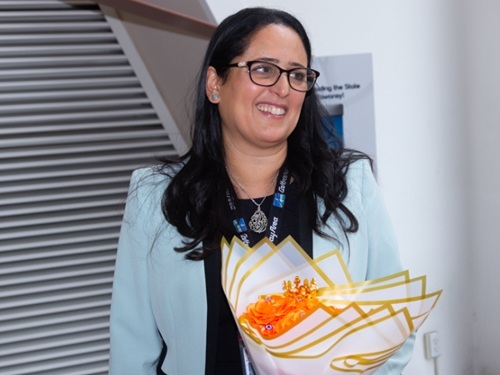The Georgia Department of Transportation plans to a host a three-day technology challenge aimed at turning its traffic light data into safety applications that can be used to support autonomous vehicles.
[Above photo by Cedric Mohr for the Georgia DOT.]
The agency said in a statement that the winning team will receive $75,000 to further develop the application while working alongside Georgia DOT’s technology and transportation leadership team.

“We are looking for serious technology partners that are as equally committed to helping us build modern and safety-focused transportation infrastructure,” said John Hibbard, the agency’s operations director, in a statement. “We view this as an exciting opportunity to tap the ingenuity and know-how of technology companies with a vision that aligns with our own,”
The Georgia DOT added that a maximum of 15 information technology companies will be selected to participate in its Smart Vehicle Tech challenge, with an application deadline of October 15.
That contest mirrors the Signal Phasing and Timing or SPaT Challenge initiated by the National Operations Center of Excellence two years ago – a partnership of the American Association of State Highway and Transportation Officials, the Institute for Transportation Engineers, and the Intelligent Transportation Society of America, with support from the Federal Highway Administration.
[The Louisiana Department of Transportation and Development explains in the video below how traffic signal phasing and timing can improve both safety and travel efficiency for roadway users.]
That effort encourages state and local public sector transportation infrastructure owners and operators to cooperate together to achieve deployment of dedicated short-range communication or DSRC infrastructure with traffic signal phasing and timing broadcasts in at least one corridor or network (approximately 20 signalized intersections) in each of the 50 states by January 2020.
 States
States
Dina El-Tawansy Appointed Director of Caltrans
July 11, 2025 States
States

